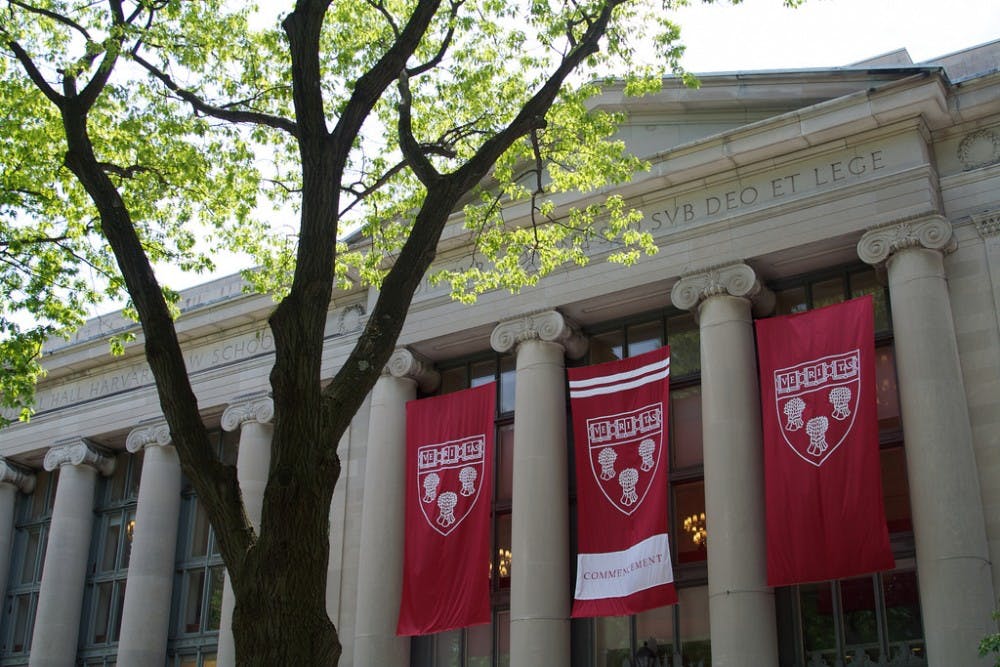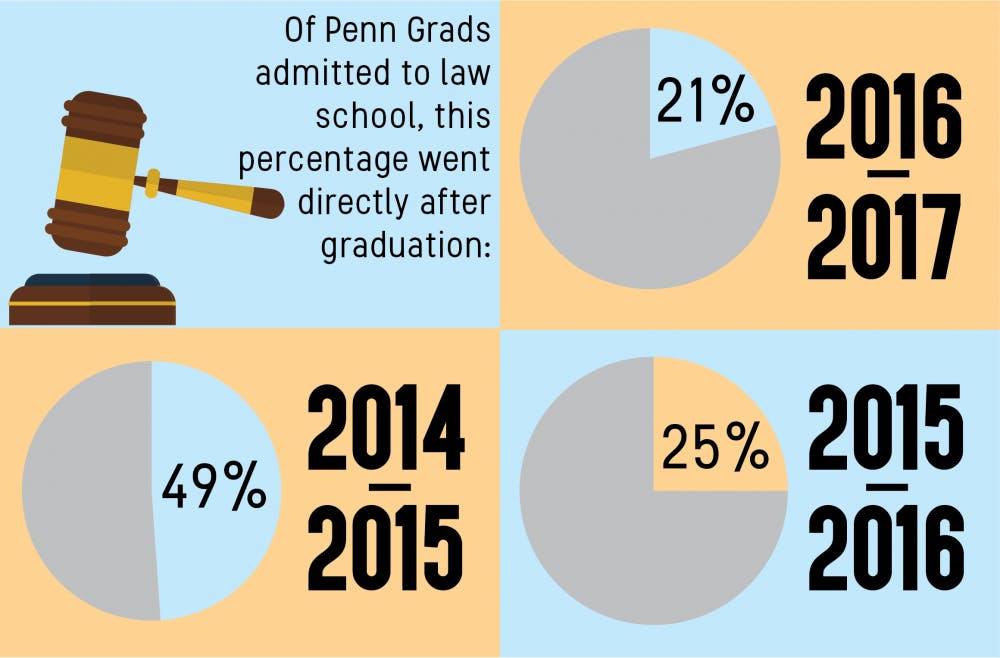
Penn Law students are taking time off after college graduation at a higher rate than in previous years, following a national trend toward delaying law school to join the workforce temporarily.
At Penn Law, this phenomenon exists in the pools of both applicants and admitted students.
Of the current first-year students at Penn Law, 75 percent have spent one or more years out of school before enrolling in law school.
Associate Dean of Admissions and Financial Aid at Penn Law Renee Post wrote in an email to The Daily Pennsylvanian that the trend of taking time off before coming to Penn, whether that be to work or to pursue other endeavors, is seen across all applicants.
"In recent years we’ve seen an uptick in applicants who do not enroll immediately following the completion of their undergraduate degree,” Post wrote. “This year, for example, 75 percent of our first-year class did not enroll directly from undergrad, which directly correlates to the percentage of applicants in our pool last cycle who have been out of undergrad for at least one year."
When looking at the total number of Penn students admitted to law school each year, a smaller share of them comes directly from the current graduating class, and a larger share of students are taking time off first.
Of Penn undergraduate students admitted to law schools in the 2016-2017 application cycle, 21 percent applied to go to law school directly from Penn as an undergrad. For the 2015-2016 application cycle, 25 percent came directly from college, and in 2014-2015, 49 percent enrolled directly from Penn.

“This is a somewhat recent trend,” said Career Services Associate Director of Graduate and Professional School Advising Mia Carpiniello. “But, for several years we have seen the majority of our applicants taking time before starting law school.”
There was a noticeable uptick in the number of students who took time to work before coming to school, Harvard Law School Assistant Dean for Admissions and Chief Admissions Officer Kristi L. Jobson told the Harvard Crimson earlier this fall. She added that the percentage of students with work experience is nearly reversed from what it was when she was in law school. Eighty-two percent of all current first-year law students at Harvard spent at least one year working before starting school.
“When I was a 1L, my class was almost 60 percent straight from college,” Jobson told the Crimson. “It's almost a flip of what it used to be."
The trend is also seen on New York University’s campus, where 77 percent of all first-year law students have spent one or more years out of college before enrolling in law school. Of these students, 16 percent spent five or more years out of school before heading to NYU.
Jobson also said Harvard is now placing more emphasis on real-work experience when reviewing applicants at the law school. Post said Penn Law, though not explicitly weighing work experience more heavily than before, has seen a jump in the number of students enrolled with prior time in the workforce.
“Penn Law’s Admissions Committee considers numerous factors in the admissions process, including a student’s academic record, course selection and grade trends, standardized test score, letters of recommendation, leadership, community service, extracurricular activities, professional and life experiences, and the applicant’s examples of written expression (standardized test writing sample, personal statement, and optional essays),” Post wrote in her statement.
In reviewing Penn’s matriculants over the last few years, Carpiniello said the decision to work before enrolling in law school is a highly individualized and a personal choice – one that can be attributed to a variety of reasons.
“Some want to explore a field outside of the law before embarking on their legal education, others want to work within the legal field to gain exposure to the profession before they start law school,” Carpiniello said. “Some law school applicants choose not to apply in their senior year because they feel their application to law school will be stronger if they wait to apply, giving them more time to take the LSAT, include their senior year grades, gain additional life experience, etc.”
Carpiniello said while she can't say that it is universally beneficial for all applicants to take time off before enrolling in law school, many applicants will be "stronger, more mature, and feel more ready for law school" if they take time after graduation.
"But, some students feel ready to go straight to law school after graduating Penn. It really depends on the individual applicant and this is something we discuss with students in our pre-law advising appointments," she added.
Among those students is College senior Nicole Rubin, who said she does not need any more time to decide what career path she wants to follow.
“I am not taking time off because I am very certain that this is what I want to do,” Rubin said. “I’ve always been an extremely career-oriented person, and if I could start my legal career tomorrow I would.”
The Daily Pennsylvanian is an independent, student-run newspaper. Please consider making a donation to support the coverage that shapes the University. Your generosity ensures a future of strong journalism at Penn.
Donate




